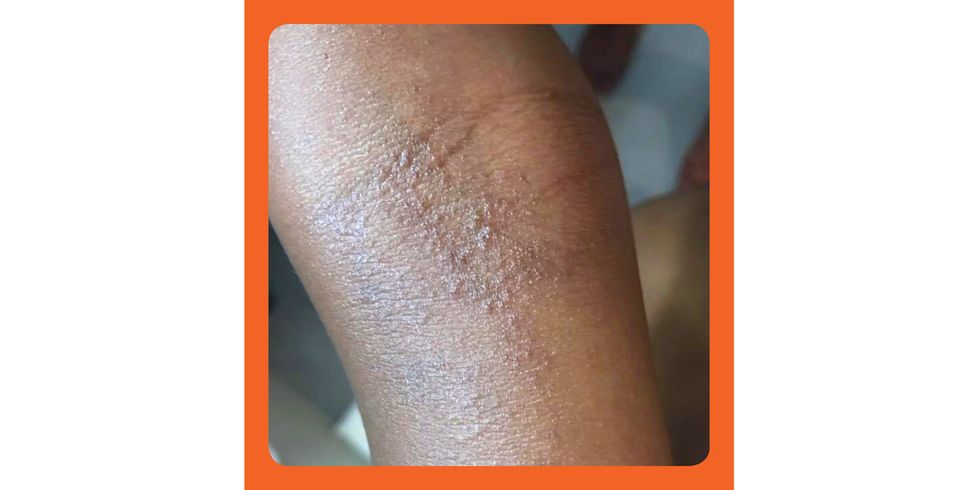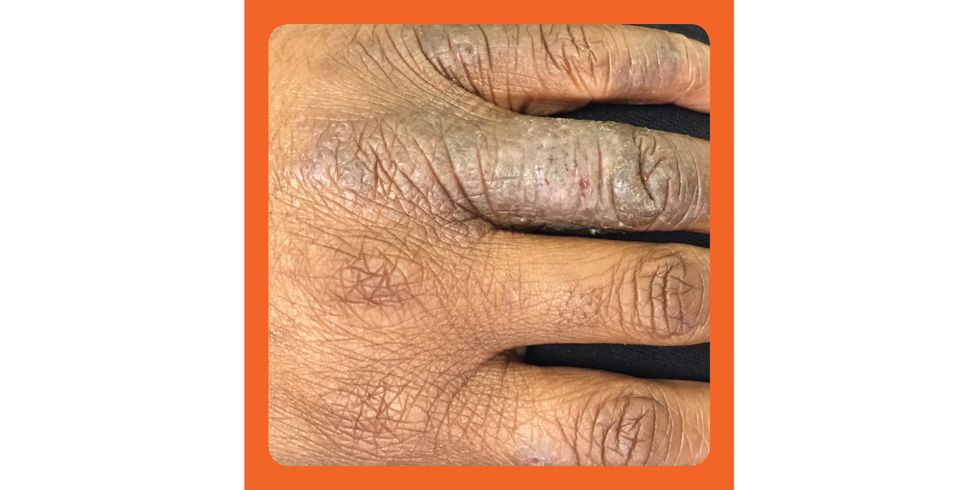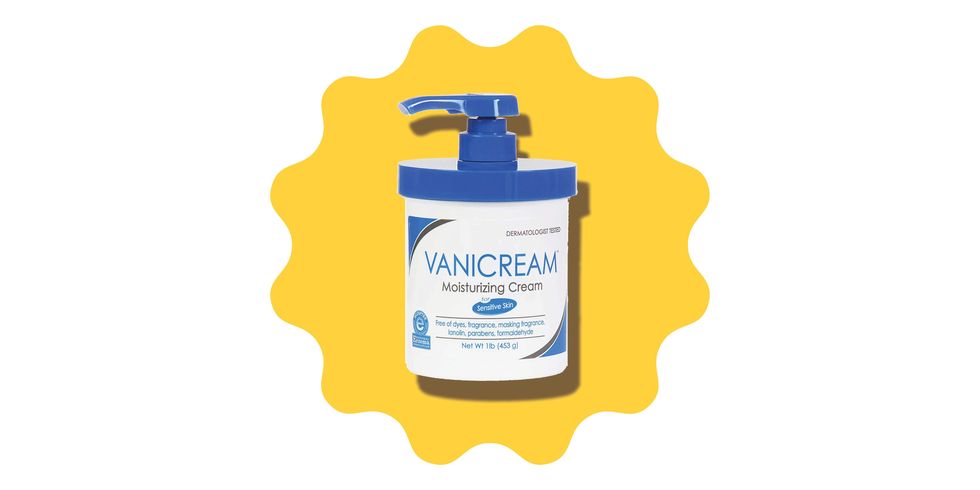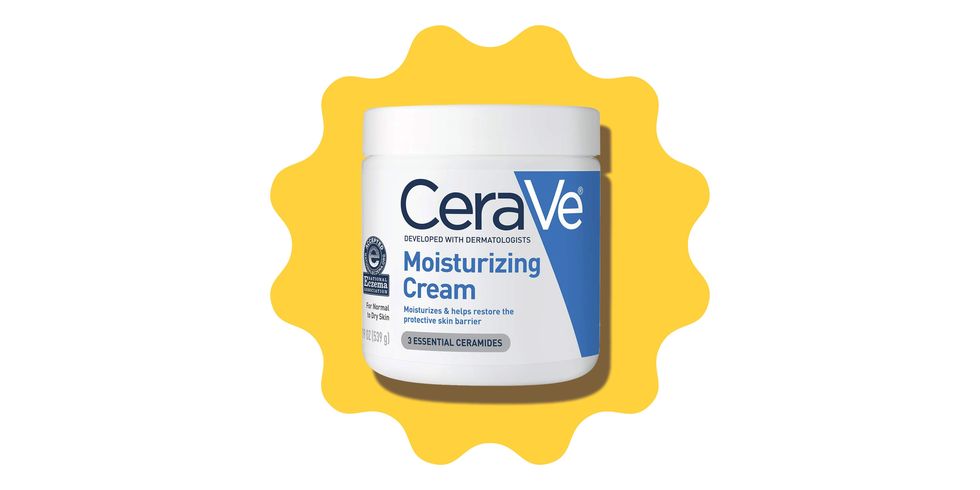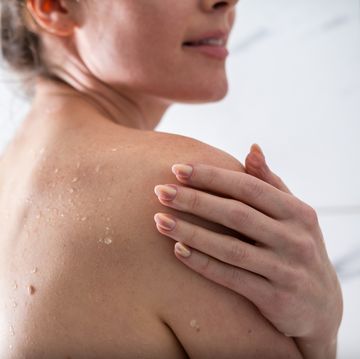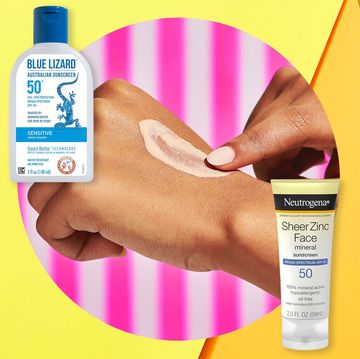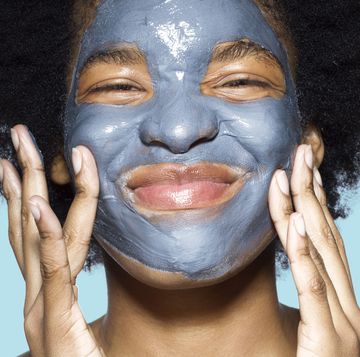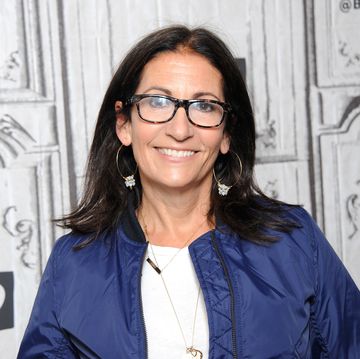It doesn’t quite feel like winter if you don’t experience a bit of itchy, dry skin from time to time. But there’s a big difference between dealing with occasional itchiness and dryness and living with eczema. If you have eczema, you know it can be quite the challenge to control. It seems like flare-ups can magically appear overnight, but take a whole lot longer to get under control. Not to mention, some eczema can be minimal and itchy, while other cases can develop into large, flakey and dry patches.
And if you have melanin-rich skin, you may find this skin condition to be even more troublesome than others, for a few reasons. First of all, Black skin is notoriously underrepresented in dermatological research. It's estimated that only 4.5 percent of medical textbooks show conditions on dark skin, according to a study published in Social Science & Medicine. Those inequities in medical literature can make it especially difficult to then recognize skin concerns like eczema on your own skin and then advocate for yourself to get an accurate diagnosis.
That’s why we decided to get the scoop on eczema from a few board-certified dermatologists, to find out how it appears on Black skin, and how it can be diagnosed and treated. Keep reading to learn more about this skin condition and how it affects the Black community.
What is eczema in the first place?
“Eczema is a sort of umbrella term that includes a few itchy skin rashes, but it most commonly refers to the condition known as atopic dermatitis,” says Laura Scott, MD, board-certified dermatologist and associate director, skin of color division at UM Frost Dermatology. It's a chronic condition, she continues, where an overactive immune system leads to an impaired skin barrier that can cause dry, itchy skin, and even skin infections.
What makes this skin condition even more complicated is that it’s not the same across the board. “There are actually multiple forms of eczema ranging in severity and appearance,” Caroline Robinson, MD, Chicago-based board-certified dermatologist and founder of Tone Dermatology, says. It can appear as early as infancy and usually shows up on the face, elbow and knees. From there, it can eventually spread to other parts of the body.
So what causes eczema?
Basically, the cause of eczema is somewhat unknown. “Some people are born with genetic tendency to develop eczema. However, it is not completely understood why some people develop a more severe form than others or when it develops,” says Dr. Robinson.
Dr. Scott agrees that the cause is a combination of genetics and environment. Of course in certain seasons, if the temperatures drop where you live, dry skin will be more prevalent.
Does eczema look different on brown skin?
Like we stated before, not all eczema is the same, but there are certain symptoms that are common. “In general, eczema rashes are very itchy, dry patches on the skin,” says Dr. Scott. On lighter skin, they often appear red, but on darker skin they can appear purplish or brown.
But not every dry patch that appears on the skin is actually eczema. Dr. Robinson notes that if the patches aren’t itchy, the diagnosis of eczema is a less likely one. So if you find that itch is consistent in your dry patches, it’s best to see a dermatologist as soon as possible.
Other symptoms Dr. Robinson notes are scaling, crusting, scratches, thickening of the skin, and redness. But she does note that redness can be a challenge to detect on dark skin, and has the potential to lead to underdiagnosis or misdiagnosis.
If you have melanin-rich skin, are you more likely to get eczema?
Studies have shown that Black skin doesn’t retain as much water as white skin, which means that Black people are more likely to have dry skin. The causes have to do with both the composition of the skin itself, and the environment some Black people are living in. “Black skin has increased trans-epidermal water loss and decreased ceramide levels, that can lead to more significant dryness. Also, eczema rates are higher in urban settings, where there are higher levels of environmental pollutants,” Dr. Scott says.
Some research also posits that people of African American, Hispanic and even Asian descent have worse conditions of atopic dermatitis or eczema than other ethnicities, according to Massachusetts-based board-certified dermatologist, Dr. Karen Kagha, MD.
Dr. Robinson agrees that Black patients are more likely to develop eczema, and she says that their skin also tends to be more resistant to treatment. “There is a complex mix of factors, including genetics, skin barrier function, and environment that seem to play a role in these differences.”
How can you treat eczema in Black skin?
There are a few ways experts treat eczema, but it depends on the severity of the case. “Moisturizers are one of the most important treatments,” Dr. Scott says. “We need to restore lost water and seal it in, so thick creams or ointments are the backbone to any eczema treatment and preventing flare ups.” Consider over-the-counter options like Vanicream Moisturizing Cream or CeraVe Moisturizing Cream.
Dr. Kagha recommends reaching for a cream that’s fragrance-free, bland, and thick. Using products with added fragrances can irritate the skin even more and cause the eczema to worsen.
While a heavy moisturizer can help keep moisture locked into the skin, Dr. Scott says a flare-up will often require a topical steroid. “Topical steroids calm down the inflammation and help to control itch, but shouldn’t be used long-term.” If you’re looking for a non-steroid option, talk with your dermatologist to see which option would be best for you. For severe cases that affect most of the body, one treatment option is a light-based treatment called phototherapy. Oral medications or biologic injections might be other possibilities, Dr. Scott adds.
While all of these treatments are the same no matter what race or ethnicity you are, Dr. Kagha and Robinson both noted that a common concern among brown-skinned patients is hyperpigmentation once the flare-up has been treated. Dr. Kagha says that these post-inflammatory spots are often left behind once the eczema fades, but these marks can be treated with a prescription retinoid, for example, and should fade with time.
The bottom line: Eczema may be more common on Black skin, but is often misdiagnosed. If you believe you might have eczema, schedule an appointment with a dermatologist to discuss the best next steps.

